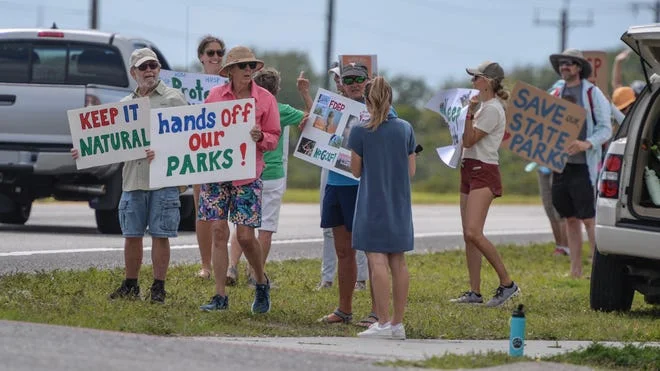
Are Florida’s Treasured State Parks Safe from Development?
In the wake of widespread public protests, Florida lawmakers have taken a stand to protect the state's beloved parks from commercial encroachment. This move highlights growing tensions between environmental conservation and development pressures, raising questions about the future of public lands in one of America's most visited states.
Last summer, outrage erupted across Florida when details of the 'Great Outdoors Initiative' leaked, revealing plans for pickleball courts, golf courses, and even hotels in state parks. Citizens rallied with signs proclaiming 'Parks Over Profit' and 'Save Don't Pave,' leading to massive demonstrations at parks like Jonathan Dickinson State Park. The backlash was swift and bipartisan, forcing Governor Ron DeSantis to distance himself from the proposals, claiming he had never approved them despite his oversight of state agencies.
On Thursday, the Florida House unanimously passed a bill aimed at safeguarding these natural havens. State Rep. John Snyder, a key supporter from a district north of Palm Beach, emphasized the legislation's strength, stating, 'We've put real plans in place to make sure that, for generations to come, our state parks will be preserved.' Snyder noted that the parks, enjoyed by millions of residents and tourists, would only allow 'conservation-based recreational uses' such as hiking, swimming, horseback riding, and nature study. This amendment, bolstered by Senate input, ensures developments align with environmental priorities rather than profit-driven ventures.
The bill's passage marks a significant shift, especially for Republican lawmakers who have historically backed DeSantis. It intensifies scrutiny on the governor's environmental record, particularly after his environmental secretary, Shawn Hamilton, resigned amid criticism and was replaced by Alexis Lambert in November. While DeSantis has not confirmed whether he will sign the bill, his earlier decision to send plans 'back to the drawing board' suggests a potential pivot toward conservation.
Comparatively, this event underscores a broader national debate on balancing recreation with preservation. Florida's state parks, often seen as vital green spaces in a rapidly developing state, face unique challenges from tourism and urban sprawl. Protests highlighted community values, with events covered extensively by outlets like WPTV, where locals voiced concerns about losing natural habitats to commercial interests.
In conclusion, this legislative win could set a precedent for environmental protection nationwide, ensuring state parks remain accessible and intact. What do you think—should public lands prioritize conservation over development? Share your views in the comments below and help shape the conversation on preserving Florida's natural heritage.